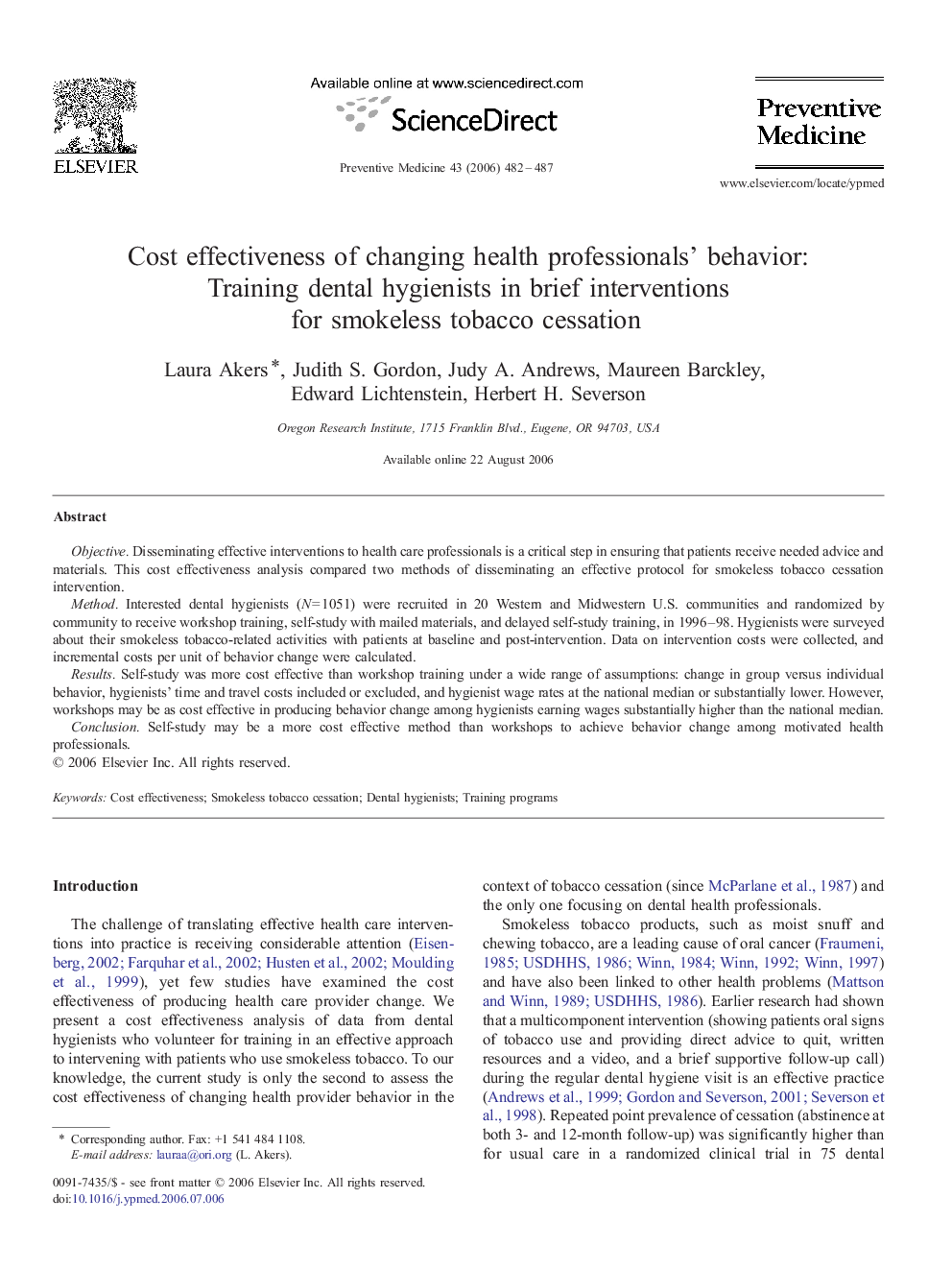| Article ID | Journal | Published Year | Pages | File Type |
|---|---|---|---|---|
| 3102204 | Preventive Medicine | 2006 | 6 Pages |
Objective.Disseminating effective interventions to health care professionals is a critical step in ensuring that patients receive needed advice and materials. This cost effectiveness analysis compared two methods of disseminating an effective protocol for smokeless tobacco cessation intervention.Method.Interested dental hygienists (N = 1051) were recruited in 20 Western and Midwestern U.S. communities and randomized by community to receive workshop training, self-study with mailed materials, and delayed self-study training, in 1996–98. Hygienists were surveyed about their smokeless tobacco-related activities with patients at baseline and post-intervention. Data on intervention costs were collected, and incremental costs per unit of behavior change were calculated.Results.Self-study was more cost effective than workshop training under a wide range of assumptions: change in group versus individual behavior, hygienists’ time and travel costs included or excluded, and hygienist wage rates at the national median or substantially lower. However, workshops may be as cost effective in producing behavior change among hygienists earning wages substantially higher than the national median.Conclusion.Self-study may be a more cost effective method than workshops to achieve behavior change among motivated health professionals.
